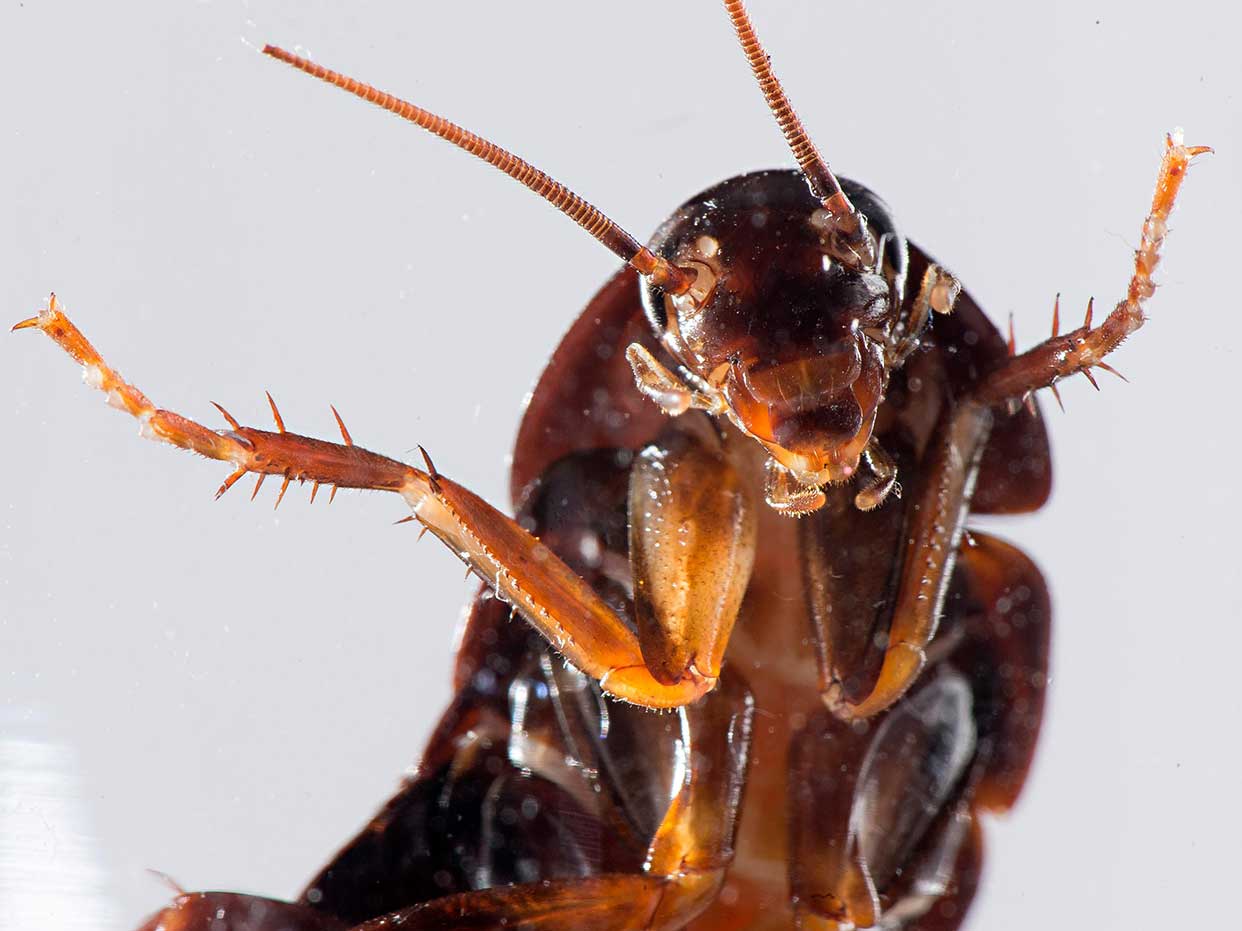Why cockroach milk is the ultimate ‘superfood’
Scientists say the fluid is ‘among the most nutritious substances on the planet’

A free daily email with the biggest news stories of the day – and the best features from TheWeek.com
You are now subscribed
Your newsletter sign-up was successful
Forget oat, soy or almond milk… one day, you may be able to enjoy a cockroach milk latte.
Social media lit up on Tuesday night when Marie Claire reshared an article first published in August 2016 claiming that cockroach milk was the next big superfood trend.
But how to you go about milking a cockroach? Put the image of a three-legged stool out of your mind, because the “milk” is actually a protein-dense fluid produced by the female Pacific beetle cockroach.
The Week
Escape your echo chamber. Get the facts behind the news, plus analysis from multiple perspectives.

Sign up for The Week's Free Newsletters
From our morning news briefing to a weekly Good News Newsletter, get the best of The Week delivered directly to your inbox.
From our morning news briefing to a weekly Good News Newsletter, get the best of The Week delivered directly to your inbox.
The roach, native to Hawaii, is among the handful of insects which give birth to live young rather than laying eggs, NPR explains.
As the embryos grow inside her, “she feeds them a pale, yellow liquid milk’ from her brood sack”.
Admittedly, it’s not the most mouth-watering prospect. Perhaps The Washington Post’s description can win you over: “Slice open an embryonic roach under a microscope, and the crystals spill out in a shower of nutrient-dense glitter.”
So far, so unappetising. But scientists say the hyper-nutritious fluid is the ultimate superfood.
A free daily email with the biggest news stories of the day – and the best features from TheWeek.com
In fact, “experiments suggest that cockroach milk is among the most nutritious and highly caloric substances on the planet”, the Post reports.
Cockroach milk contains four times as much protein as cow's milk, says Marie Claire, as well as “essential amino acids that promote cell growth, lipids that keep our bodies healthy, and sugars that fuel energy”.
Unsurprisingly, it was a hard sell on Twitter:
The difficulty of harvesting cockroach milk means we shouldn’t expect to see it on the shelves. However, researchers are working on ways to replicate the fluid in a lab, which could go some way to overcoming consumers’ in-built aversion.
But one crucial question remains unanswered: what does cockroach milk taste like? The answer is perhaps the least horrifying aspect of the whole concept. According to a biochemist at the Institute for Stem Cell Biology and Regenerative Medicine in Bangalore, India, who took the plunge, the liquid tastes like “nothing”.
-
 The environmental cost of GLP-1s
The environmental cost of GLP-1sThe explainer Producing the drugs is a dirty process
-
 Greenland’s capital becomes ground zero for the country’s diplomatic straits
Greenland’s capital becomes ground zero for the country’s diplomatic straitsIN THE SPOTLIGHT A flurry of new consular activity in Nuuk shows how important Greenland has become to Europeans’ anxiety about American imperialism
-
 ‘This is something that happens all too often’
‘This is something that happens all too often’Instant Opinion Opinion, comment and editorials of the day
-
 Epstein files topple law CEO, roil UK government
Epstein files topple law CEO, roil UK governmentSpeed Read Peter Mandelson, Britain’s former ambassador to the US, is caught up in the scandal
-
 Iran and US prepare to meet after skirmishes
Iran and US prepare to meet after skirmishesSpeed Read The incident comes amid heightened tensions in the Middle East
-
 Israel retrieves final hostage’s body from Gaza
Israel retrieves final hostage’s body from GazaSpeed Read The 24-year-old police officer was killed during the initial Hamas attack
-
 China’s Xi targets top general in growing purge
China’s Xi targets top general in growing purgeSpeed Read Zhang Youxia is being investigated over ‘grave violations’ of the law
-
 Panama and Canada are negotiating over a crucial copper mine
Panama and Canada are negotiating over a crucial copper mineIn the Spotlight Panama is set to make a final decision on the mine this summer
-
 Why Greenland’s natural resources are nearly impossible to mine
Why Greenland’s natural resources are nearly impossible to mineThe Explainer The country’s natural landscape makes the task extremely difficult
-
 Iran cuts internet as protests escalate
Iran cuts internet as protests escalateSpeed Reada Government buildings across the country have been set on fire
-
 US nabs ‘shadow’ tanker claimed by Russia
US nabs ‘shadow’ tanker claimed by RussiaSpeed Read The ship was one of two vessels seized by the US military